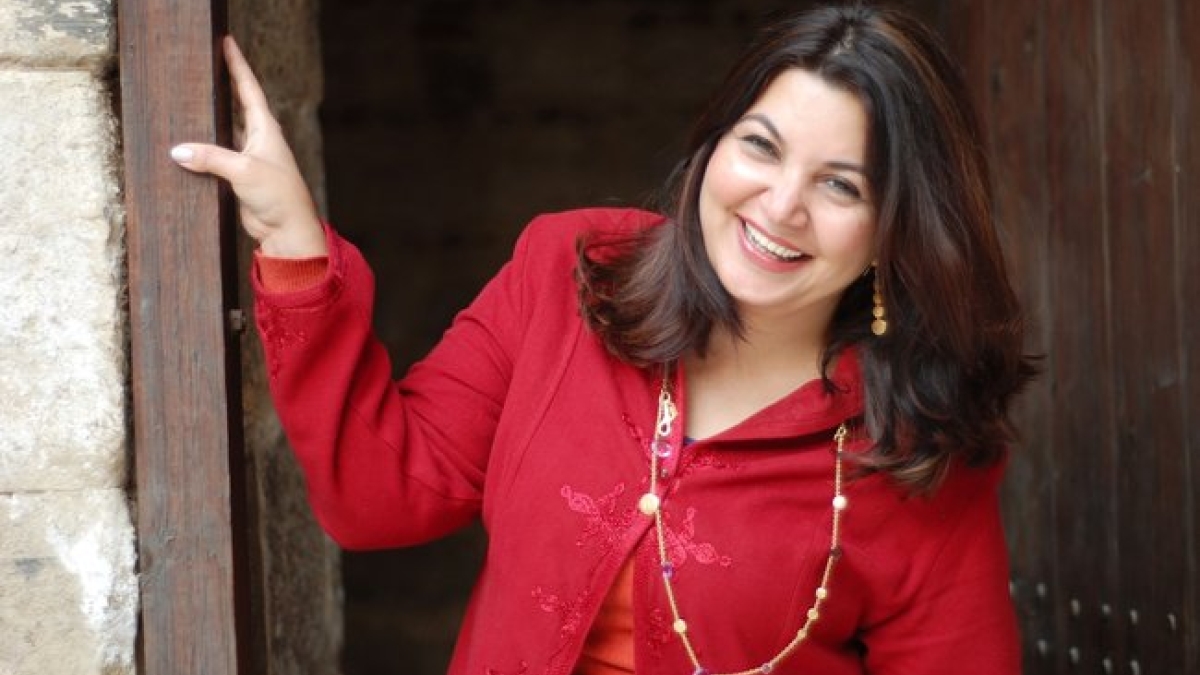Award-winning novelist, ASU professor discusses 'Brooklyn Heights: A Modern Arabic Novel'

February 12, 2013
7-8:30 p.m.
Miral al-Tahawy, award-winning novelist and assistant professor of modern Arabic literature in ASU's School of International Letters and Cultures, has been described by the Washington Post as “the first novelist to present Egyptian Bedouin life beyond stereotypes and to illustrate the crises of Bedouin women and their urge to break free.”
On Feb. 12 the School of International Letters and Cultures and Changing Hands Bookstore will host al-Tahawy as part of the school's International Artists Lecture Series. The lecture and book signing event will be held at 7 p.m., at Changing Hands Bookstore, 6428 S. McClintock Drive, in Tempe. It is free and open to the public.
When Miral al-Tahawy moved from Egypt to Brooklyn as a post-doctoral fellow in 2008, she never dreamed that her new neighborhood would bring her literary inspiration – and international notice.
Al-Tahawy wrote “Brooklyn Heights: A Modern Arabic Novel” to help her make sense of being a stranger in a foreign land and an impersonal city.
In the novel, protaganist Hind, newly arrived in New York with her eight-year-old son, several suitcases of unfinished manuscripts, and hardly any English, finds a room in a Brooklyn teeming with people like her who dream of becoming writers. As she discovers the various corners of her new home, they conjure up parallel memories from her childhood and her small Bedouin village in the Nile Delta. Emilia who sells used shoes at the flea market smells like Zeinab, the old woman who worked for Hind's grandfather. The reflection of her own body as she dances tango awakens the awkwardness of her relationship to that body across the years. And the story of Lilette, the Egyptian bourgeoise who has lost her memory, prompts Hind to safeguard her own.
The book was shortlisted for the 2011 International Prize for Arabic Fiction – the “Arab Booker Prize” – and it won the 2010 Naguib Mahfouz Medal for Literature. “Brooklyn Heights” recently was translated into English and was named “best novel” for 2011 by the website Arabic Literature (in English).
Al-Tahawy has written a collection of short stories and three other novels, all of which have won acclaim. Her first novel, “The Tent” (Al-Khibaa), published in 1996, was selected as the best literary work in a critics’ questionnaire and has been translated into English, French, Italian, German, Spanish, Swedish, Norwegian, Hindi, Urdu and Dutch, among other languages.
For her second novel, “The Blue Aubergine” (Al-Badhingana al-zarqa), she won a prize for the youngest female novelist in Egypt. Her third, “Gazelle Tracks” (Naquarat al-Zibae), was awarded the Best Novel of the Year prize at the Cairo Book Fair.
Al-Tahawy hopes that her books will give readers “a new image of the Middle East,” and that they will make her culture more understandable and accepted. “Literature is a window on culture, language and politics,” she said. “Literature is a bridge.”
A New York Times article about Miral al-Tahawy, "Making the Life of a Modern Nomad into Literature," was published on Jan. 4, 2012.
Roxane Barwick, roxane.barwick@asu.edu
480-727-8800
School of International Letters and Cultures